
How Donald Trump’s withdrawal from landmark trade deal became a setback for democracy in Vietnam
Obama had billed the Trans-Pacific Partnership as a chance for the US to write the rules of trade in the world’s fastest-growing region – while also curtailing China’s influence
It was one of US President Donald Trump’s very first acts: to pull out of the Trans-Pacific Partnership, a sweeping 12-nation trade agreement that had been the centrepiece of President Barack Obama’s strategic “rebalance” toward Asia. Trump had charged that such deals hurt American manufacturing, and on January 23, 2017, he signed the withdrawal order in the Oval Office.
“A great thing for the American worker, what we just did,” Trump said.
With that, he set in motion a political and economic storm that is still reverberating in Vietnam. Freed from conditions imposed by the Obama administration to join the trade pact, Vietnam’s Communist government has scrapped plans to allow independent trade unions and unleashed its most severe clampdown on dissent in decades. Authorities have arrested scores of social activists, bloggers and democracy advocates, sentencing many to jail terms of 10 to 20 years.
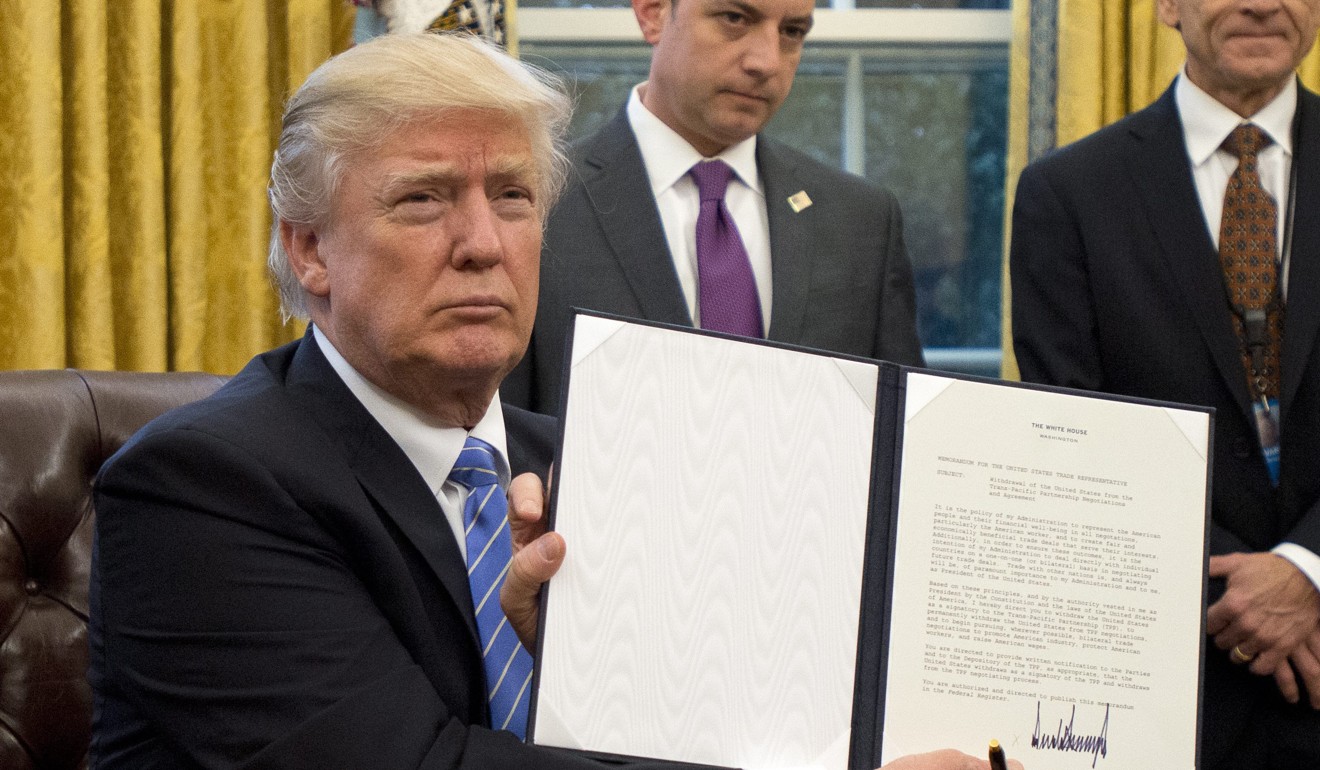
Vietnam offers an example of the little-noticed fallout from some of Trump’s earliest decisions. The Trans-Pacific treaty, known as the TPP, quickly faded from American headlines as Trump launched high-stakes trade battles with China, Europe, Mexico and Canada. But the abrupt policy change has had far-reaching ripple effects, according to diplomats and activists.
“As soon as America withdrew from the TPP, you saw a radical change in the way [the Vietnamese] government treated workers, labour activists and unions,” said labour activist Do Thi Minh Hanh, 33, speaking in a cafe in Ho Chi Minh City. “A lot of people have been harassed, followed, imprisoned and threatened.”
Trump’s policy change wasn’t the only factor in the Vietnamese crackdown – hardliners had become dominant in the Communist Party and were concerned about a rise in social activism and protests. Nor is he solely responsible for the fate of the TPP.
Obama had failed to persuade a sceptical Congress and public of the deal’s merits before leaving office, with the result that his signature Asian foreign policy initiative was widely maligned. Indeed, such was the prevailing mood that candidate Hillary Clinton signalled her intent to pull out of an agreement she had once lauded as the “gold standard” of trade deals.
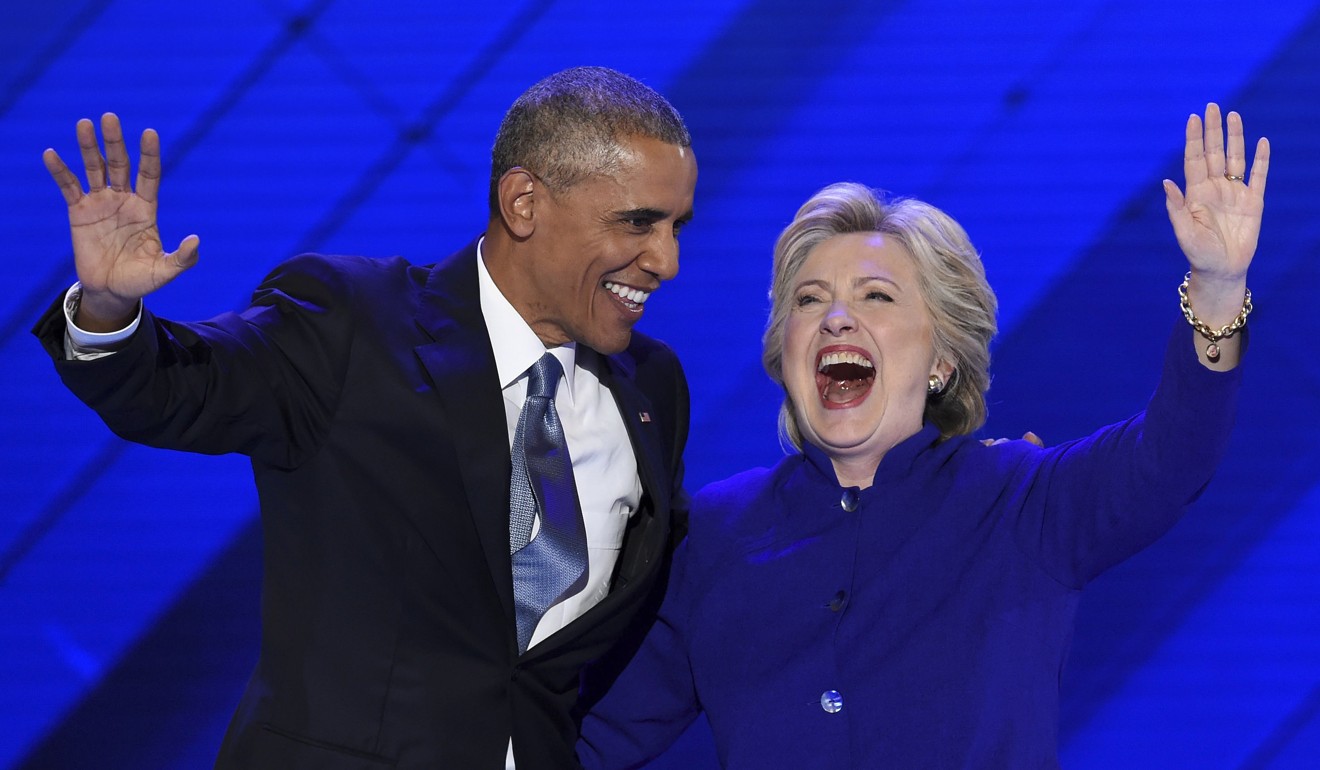
Asked about the TPP decision and crackdown in Vietnam, a spokesman for the National Security Council, Garrett Marquis, said trade treaties weren’t necessarily effective in achieving democratic reform. He pointed to China’s accession to the World Trade Organisation in 2001, saying it “proved beyond all doubt that increasing international trade doesn’t always liberalise authoritarian single-party states. In fact, it may delay liberalisation by making the ruling party stronger.”
The pros and cons of the trade pact are debatable. But some things are more certain. The United States’ decision to construct and then exit from the TPP struck an enormous blow to its credibility in Asia, one that China was not shy about exploiting. The decision also exacted a real human cost in Vietnam, activists say.
How Donald Trump’s example has emboldened Asia’s strongmen leaders
As the TPP was being negotiated, a budding movement of Vietnamese activists used social media to spread ideas about workers’ rights, transparency, accountability and even democracy. The US government had engineered the trade agreement to also secure promises from Vietnam’s leadership that it would permit independent trade unions, strengthen environmental controls and allow a free and open internet. When the TPP was scrapped, that dynamic was thrown into reverse.
Minh Hanh has seen fellow labour activists arrested and given long jail sentences. She has faced constant harassment, including being attacked by masked men hurling rocks and explosives when she was staying at her father’s house.
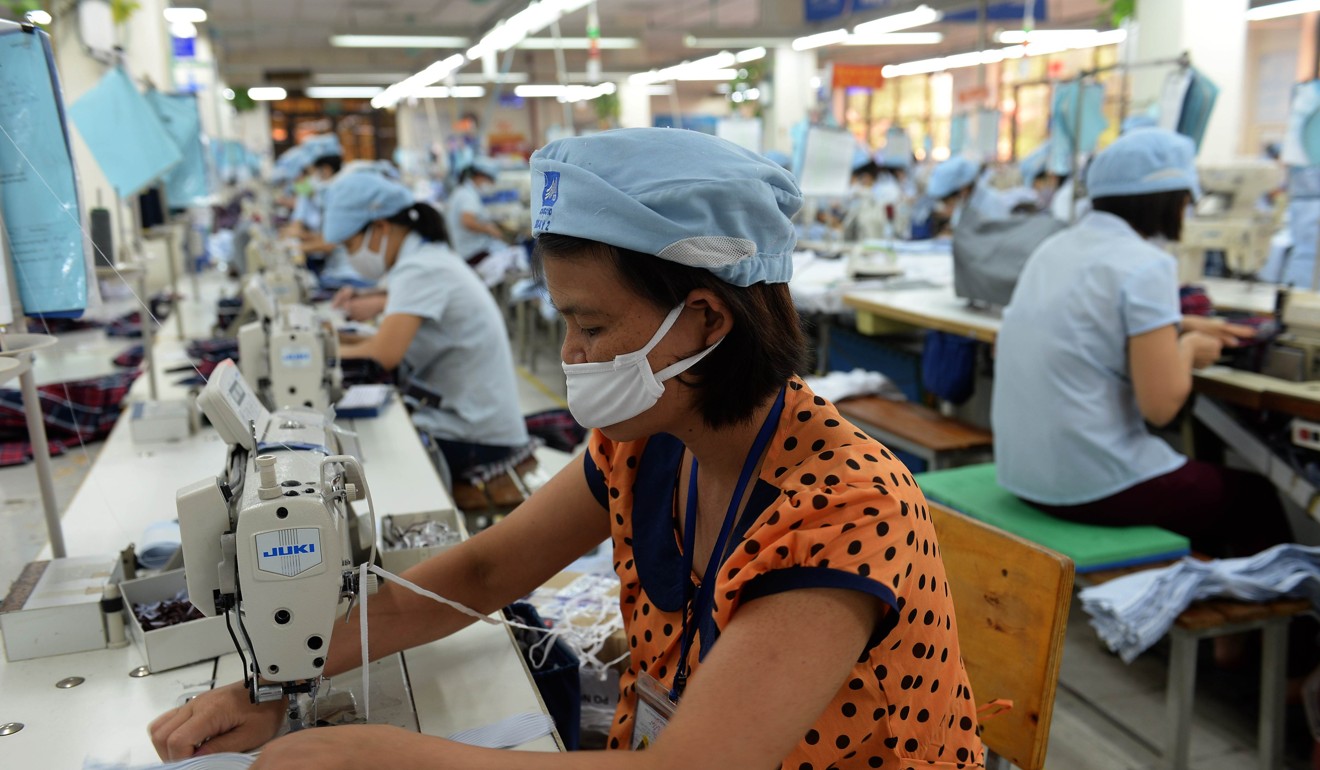
Another activist, environmentalist Le Dinh Luong, was charged with subversion and sentenced to 20 years in jail. He has not been allowed contact with his wife, who fears his fragile health means he will die in prison.
“The TPP could have been some wind in the sails of Vietnamese activists, trade unionists and environmentalists,” said Brad Adams, executive director of the Asia division at Human Rights Watch. “Pulling out of the TPP has been a big setback.”
Obama had billed the TPP as a chance for the United States to write the rules of trade in the world’s fastest-growing region and to raise labour and environmental standards so US companies would not be undercut. The deal was also a thinly disguised attempt to contain China’s rise by forming a regional, rules-based order that excluded Beijing.
As soon as America withdrew ... you saw a radical change in the way [the Vietnamese] government treated workers, labour activists and unions
Liberalisers in Vietnam’s Communist Party saw the TPP as the incentive the government needed to bring about change, with its offer of greater access to one of Vietnam’s biggest export markets: the United States.
“The TPP is the driving force for Reforms 2.0. The business environment, anti-corruption, labour reforms,” said Tran Viet Thai, deputy general director of the Institute for Foreign Strategic Studies at the Diplomatic Academy of Vietnam, a foreign ministry think tank.
Vietnam pledged to not only allow independent trade unions but also outlaw child labour and give a greater chance to private firms to compete against the Communist-run state sector. Citizens were promised a “free and open internet”.
In February 2016, the United States and 11 other countries signed the treaty. It still needed to be ratified domestically in those nations. But for the first time since the Vietnam war, the United States had real leverage to force the Communist Party to give greater political freedom to the people.
Then, the Trump administration withdrew.
“It pulled the rug out from under the reformers,” said Ted Osius, then US ambassador to Vietnam.
During TPP negotiations, Osius had constantly emphasised the need to get the trade pact ratified by Congress, and he would bring letters from members of Congress to the Vietnamese government underscoring the attention they paid to human rights.
Donald Trump’s strategy was never about alienating the world – it was always about containing China
“It was a very, very powerful message,” said Osius, a career diplomat appointed ambassador by Obama. “It didn’t mean they threw open all the prison doors, but they did consider American views when they made decisions. I don’t think that’s the case since we pulled out of TPP.”
But in Vietnam, other forces were at work. Protests had erupted in the spring of 2016 after a toxic spill caused the country’s worst environmental disaster, with marine life washing up dead along a huge swathe of shoreline. The spill came from a plant operated by a Taiwanese company, but the anger was directed at the Vietnamese government for its slow response, lack of transparency and corruption. It was the largest outpouring of anger in four decades of Communist Party rule.
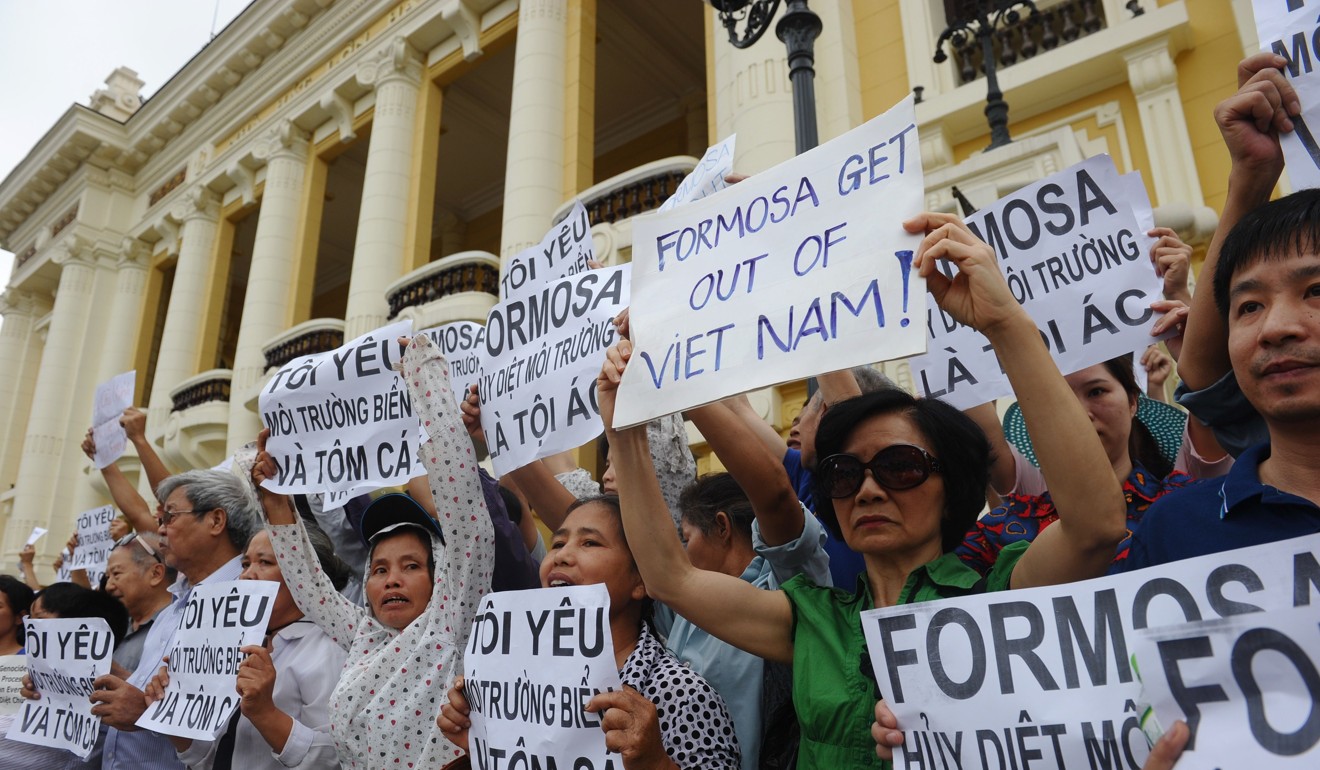
Within Vietnam’s ruling Politburo, hardline conservatives had gained the upper hand during a leadership transition in January 2016, while Obama was still in the White House. They were not about to tolerate an uprising.
The first hint of a crackdown came even before Trump won the presidential race, with the October 2016 detention of the blogger known as Mother Mushroom. But it wasn’t until the summer of 2017 that the arrests of activists started coming thick and fast.
Trump’s decision to skip two summits in Asia fuels doubts about US commitment
Mother Mushroom, whose real name is Nguyen Ngoc Nhu Quynh, had been arrested in the past, but this time was different, with a 10-year sentence handed down in June 2017 for “conducting propaganda against the socialist state”. She was one of at least 29 Vietnamese activists arrested in 2017 for their writings and advocacy on behalf of human rights, the environment and democracy, according to Amnesty International.
One month later, on the evening of July 24, 2017, environmental activist Luong was on his way home when a dozen plain clothes security officers stopped him, beat him and took him away, his wife said. Luong is a successful business executive turned community organiser and blogger.
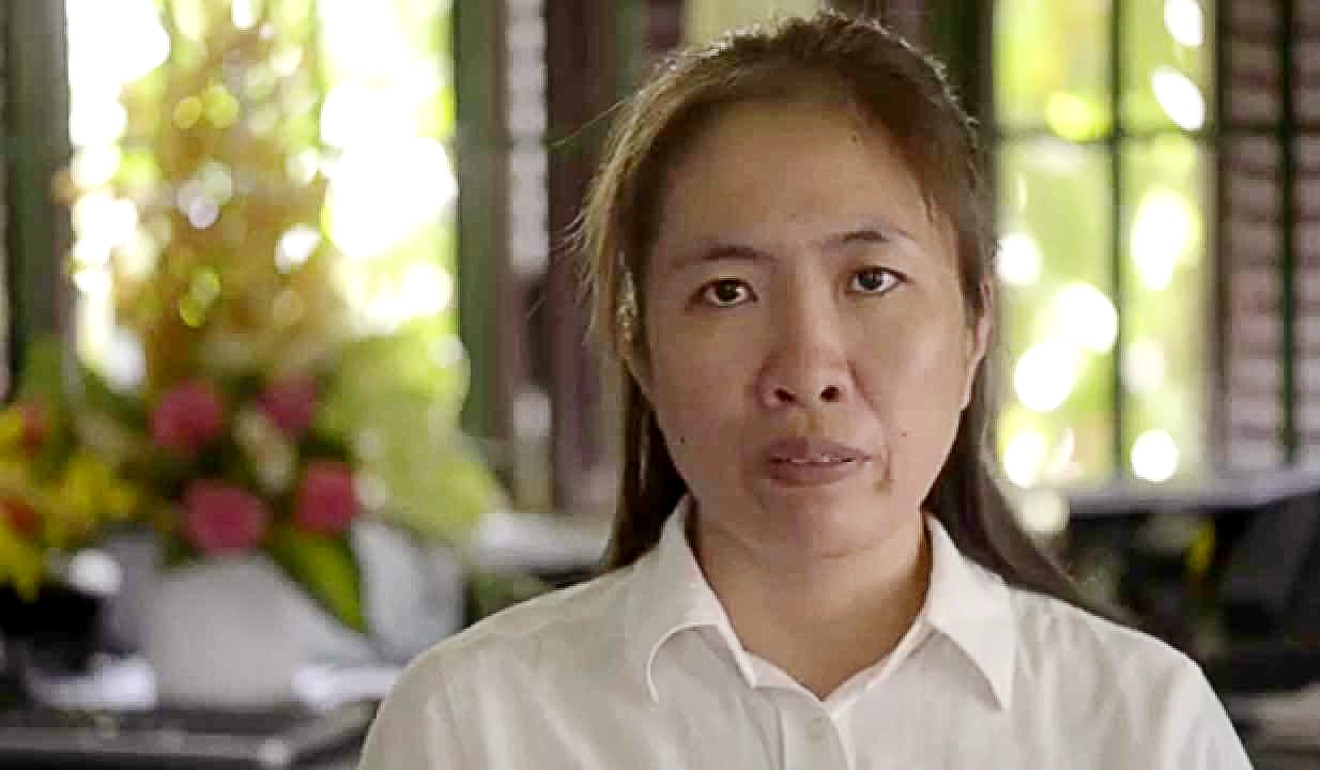
“He wants to help others, the weak and the poor, to combat injustice,” his wife, Nguyen Thi Quy, 53, said in an interview here. The couple’s son and daughter-in-law were beaten when they asked police about his whereabouts, she said.
Luong, 52, who suffers from gout, was sentenced to 20 years in prison for “carrying out activities aimed at overthrowing the people’s administration”.
Nguyen Van Dai, a lawyer, founded the Brotherhood for Democracy in 2013 with several activists, and toured the country teaching others how to defend their rights.
Divided Asean spins its wheels as great powers become back-seat drivers in Southeast Asia
On April 5, after a trial with five other leaders of the group, Dai was sentenced to 15 years in prison. Dai and one of his colleagues have since been sent into exile in Germany – partly on health grounds and partly thanks to international pressure, he said.
If the US government had stayed in the TPP, “Vietnam would have had to make many commitments about improving human rights, about improving the situation for workers,” Dai said in an interview at his modest, two-room home outside Frankfurt. “It would have been a chance to change my country.”
Vietnam still intends to join a version of the TPP that will move forward without the United States. But that deal excludes many of the tough steps that Vietnam had committed to, including on workers’ rights.
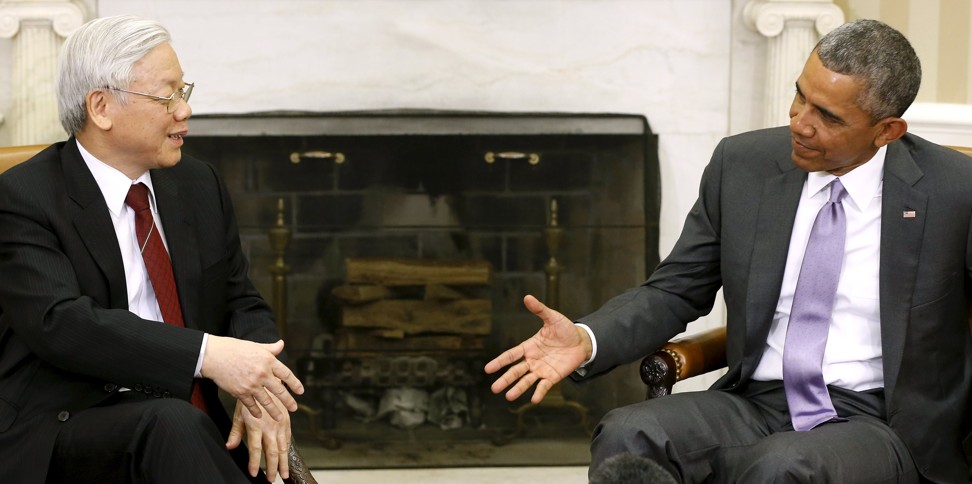
Suspicion of China runs high in Vietnam, not least because the two countries fiercely contest islands in the South China Sea. Whoever is in the White House, Hanoi’s leaders will continue to look to the United States to balance Beijing’s influence.
In late July, Secretary of State Mike Pompeo visited Southeast Asia touting the administration’s alternative to the TPP, an “Indo-Pacific Economic Vision,” promising greater economic engagement based on the principles of “freedom and openness,” and led by American companies.
Meanwhile in Vietnam, US Embassy spokesman Pope Thrower said the US government has maintained its “long-standing commitment to work with official and non-government partners to advance labour rights in Vietnam”. But Minh Hanh, the labour activist, sees things a bit differently.
She is grateful for the US support that helped free her halfway through a seven-year jail sentence in 2014 but now feels more alone.
“The fact that the United States pays less attention to trade unions makes my task as an activist a little harder,” she said. “But we activists will never pull back, never give up fighting, with or without American support.”

